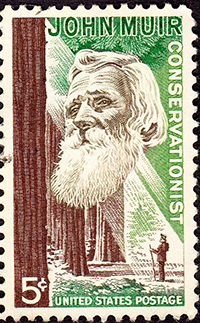
As this blog noted yesterday, the Austin American-Statesman has reported that the Austin chapter of the Sierra Club won't participate in Saturday's local Earth Day festival because the festival's chief underwriter, developer Trammell Crow, supports organizations that advocate reduction of immigration. Today we provide an abbreviated chronology of the Sierra Club's decades-long retreat from the debate about immigration's role as the principal source of the rapid population growth of the United States. We begin in 1980, when the club was concerned about that connection and discussed it openly. A full account can be found in the Center for Immigration Studies report, "Strategic Negligence: How the Sierra Club's Distortions on Border and Immigration Policy are Undermining its Environmental Legacy".
1980. A Sierra Club representative testified to the federal Select Commission on Immigration and Refugee Policy, saying: "It is obvious that the number of immigrants the United States accepts affects our population size and growth rate. It is perhaps less well known the extent to which immigration policy, even more than the number of children per family, is the determinant of the future numbers of Americans."
1989. The club's board adopted this policy position: "Immigration to the United States should be no greater than that which will permit achievement of population stabilization in the United States." The board sought to avoid offending ethnic sensibilities with the further declaration: "The Sierra Club will lend its voice to the congressional debate on legal immigration issues when appropriate, and then only on the issue of the number of immigrants — not where they come from or their category, since it is the fact of increasing numbers that affects population growth and ultimately, the quality of the environment."
1992. A few weeks after Carl Pope became the club's executive director, he presented his views in a letter to the editor of the New York Times. Pope wrote that the club believed that all nations "should act to curb their own population growth." He added: "The United States and other developed nations have a special responsibility because of our disproportionate per capita consumption of world resources. Our goal in the United States should be achieving domestic population stabilization."
1996. Under pressure from immigration activists, the club's board adopted a position of neutrality, declaring, "The board's actions reflect a desire to put the immigration debate to rest within the club and to focus on other pressing components of our population program. The board instructs all club chapters, groups, committees, and other entities to take no position on immigration policy."
1998. In response to the neutrality declaration, a group called Sierrans for U.S. Population Stabilization (SUSPS) brings the issue to club membership in the club annual election. The National Journal reported that prominent Sierran Anne Ehrlich, a long-time advocate of reduced immigration, had taken the position that the club could not act on the immigration-population connection as long as its minority-group members saw racism as the underlying motivation of those who wanted to limit immigration. The SUSPS proposal to reverse the neutrality declaration and restore the club's previous advocacy for immigration limits was soundly defeated after a heated campaign. Pope celebrated the results in an essay for the Christian Science Monitor in which he also acknowledged the importance of the global population issue. The club, he said, had been "wrestling with a critical question not just for the Sierra Club, but for the nation and the world. Where do we draw the front line in the fight to reduce overpopulation — one of the most serious threats to our environment? ... The issue won't go away. Americans have some big decisions to make."
2004. In another vote, club membership defeated an effort to elect immigration-limitation advocates to its board. This vote followed a controversial and heated campaign in which Pope and other club leaders contended that those who wanted to limit immigration were motivated by racist bigotry. "By pulling up the gangplank on immigration, they are tapping into a strand of misanthropy that says human beings are a problem," Pope said.
